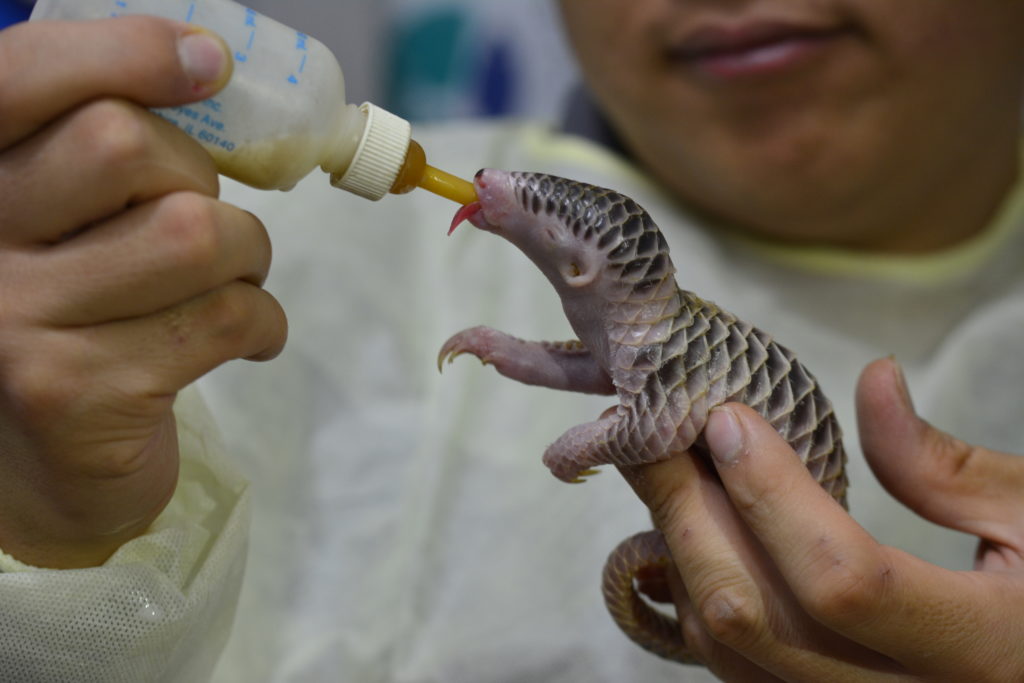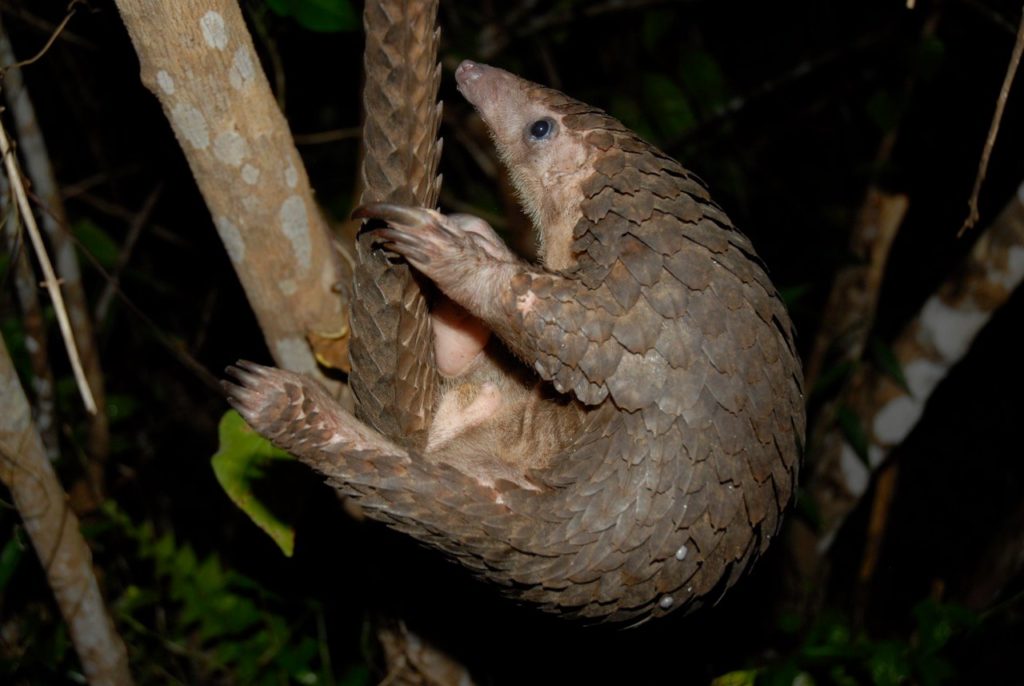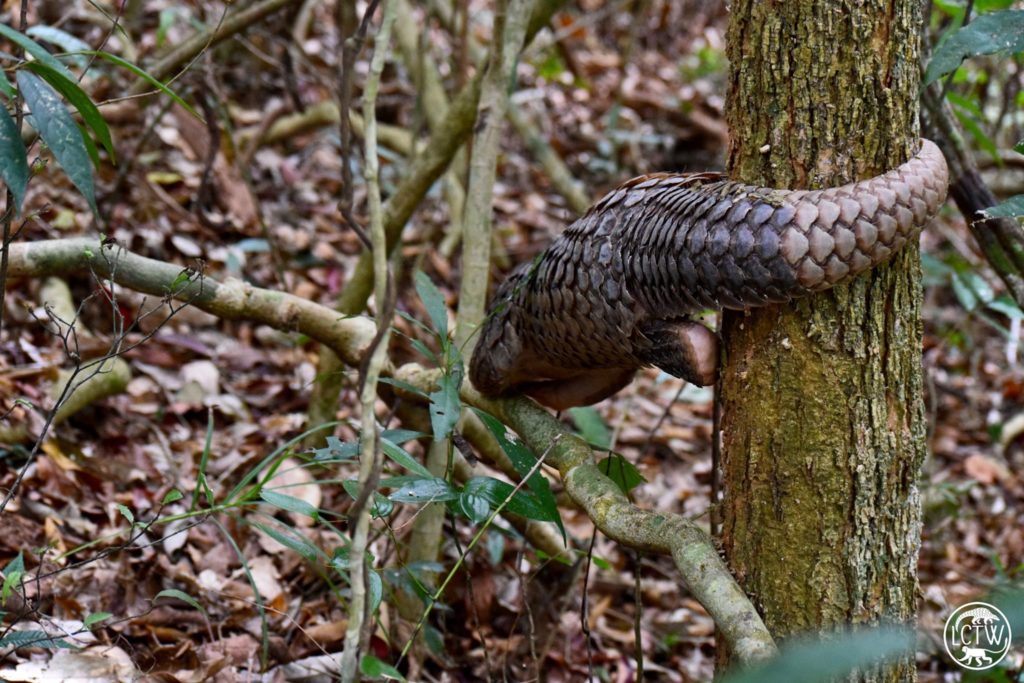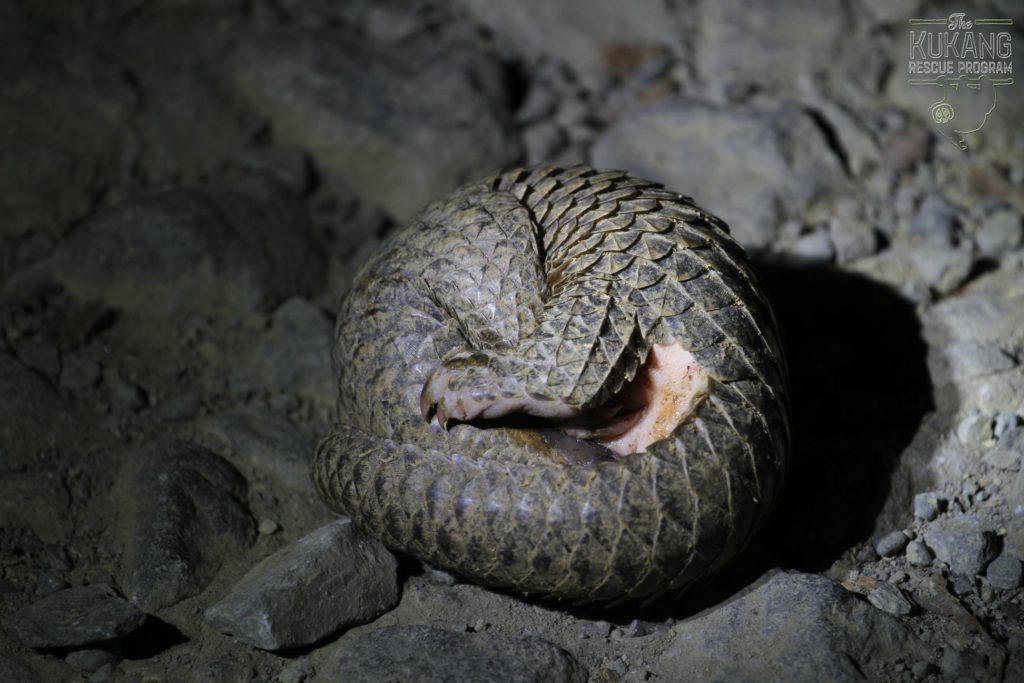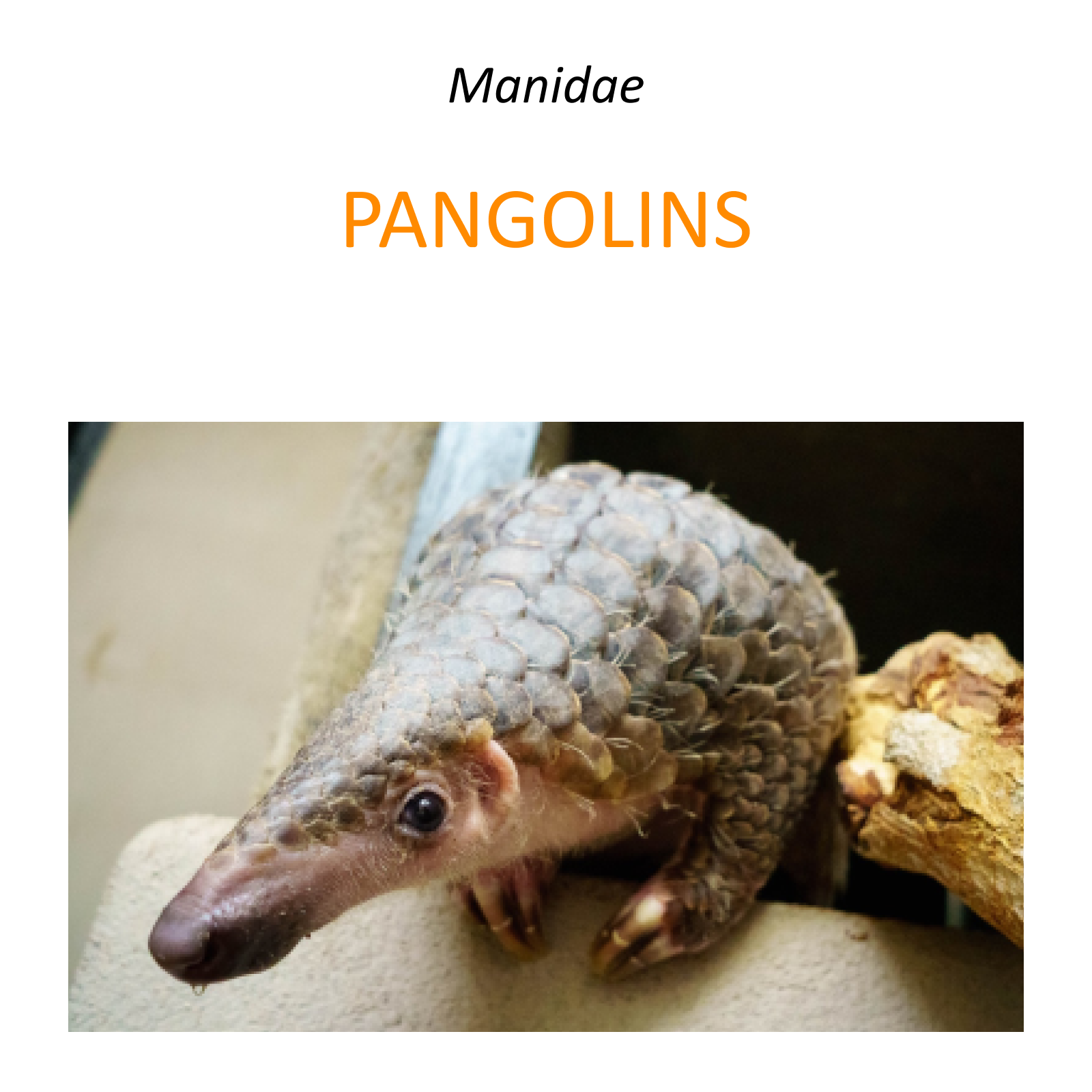Description
Pangolins have been recognized by the WWF as the animals most endangered by the illegal trade in the world. The scales covering their bodies are a commodity just as desired by the eastern market as the rhino horn. In both cases, they have absolutely no medical effect, they are a product of the skin, just like our nails. It is estimated that in our century alone, over a million of these little-known mammals have fallen victim to smugglers. This means that pangolins may become extinct during our lifetime. Asian pangolins are the most endangered. All four species have been classified by the International Union for Conservation of Nature (IUCN) as endangered or critically endangered with extinction.
There are currently eight species of pangolins in the world, all of them with thick skin covered with scales that form a protective armor. When threatened, they curl into a ball, protecting the scaleless belly and exposing the sharp edges of the scales to the outside. It is a very effective weapon against predators, even lions and tigers. They eat only insects: ants and termites. They don’t have teeth, the food is crushed by the heavily calloused stomach walls. To hunt ants and termites, they use a very long tongue, measuring up to 40 cm, and strong paws ended with strong claws, used to dig up thermites and dig holes in search of ants. They lead mostly nocturnal lives, they are loners. The young are raised by their mother, wearing them on the back or tail. Small pangolins are already born with scales, but in the first days of life the scales are still very soft.
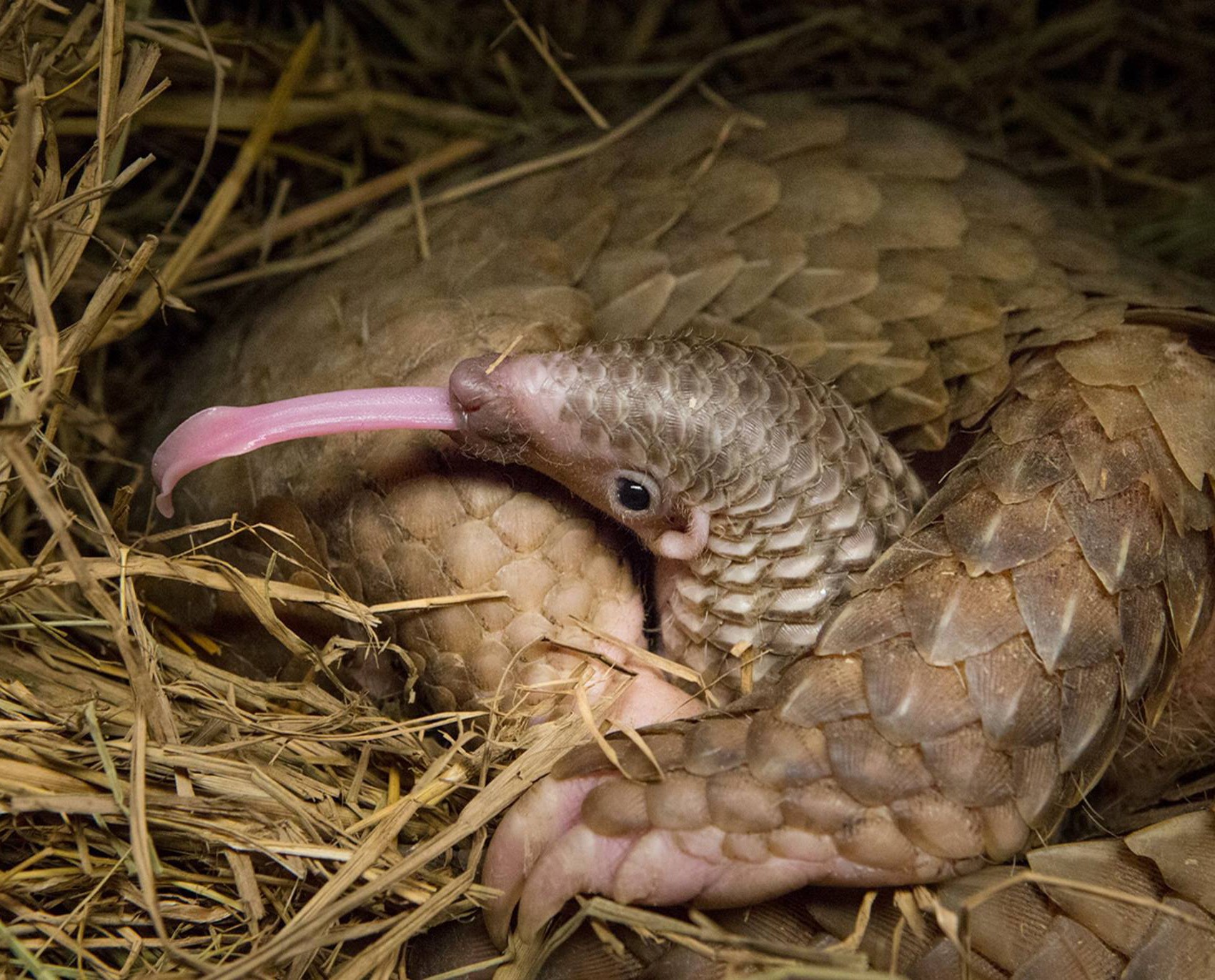
Pangolins found in Asia have auricles and grow hair at the base of their scales. There are four species of Asian pangolins:
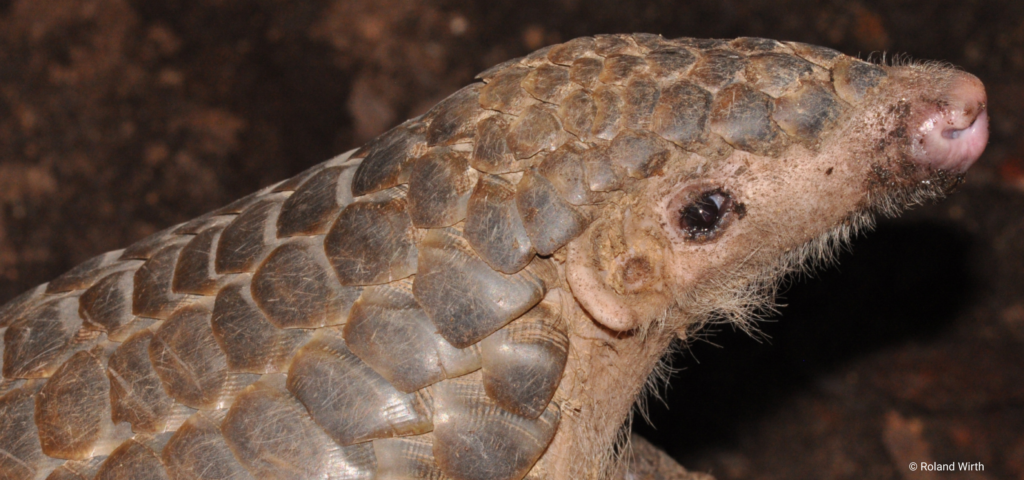
The Chinese pangolin (Manis pentadactyla) lives in tropical and bamboo forests of Southeast Asia, climbs trees well but spends most of its time in burrows. It is a critically endangered species.
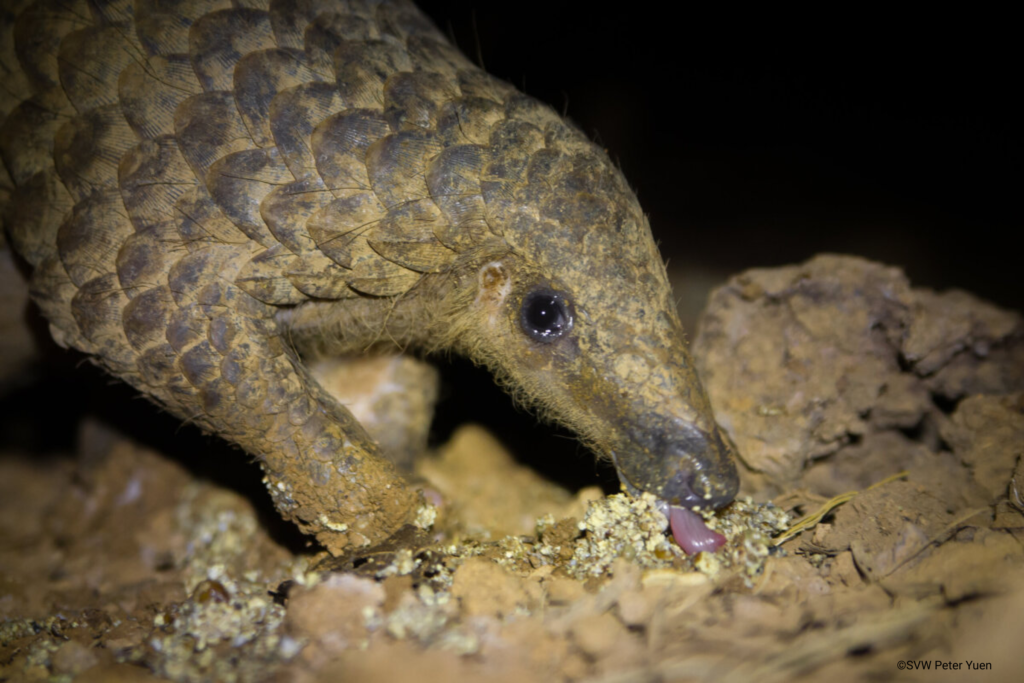
The Sunda or Javan pangolin (Manis javanica) inhabits the forests of Southeast Asia, including Cambodia, Vietnam, Laos, Thailand and the islands of Borneo, Sumatra, Java and the Sunda Islands. It mainly leads an arboreal lifestyle. It is a critically endangered species.
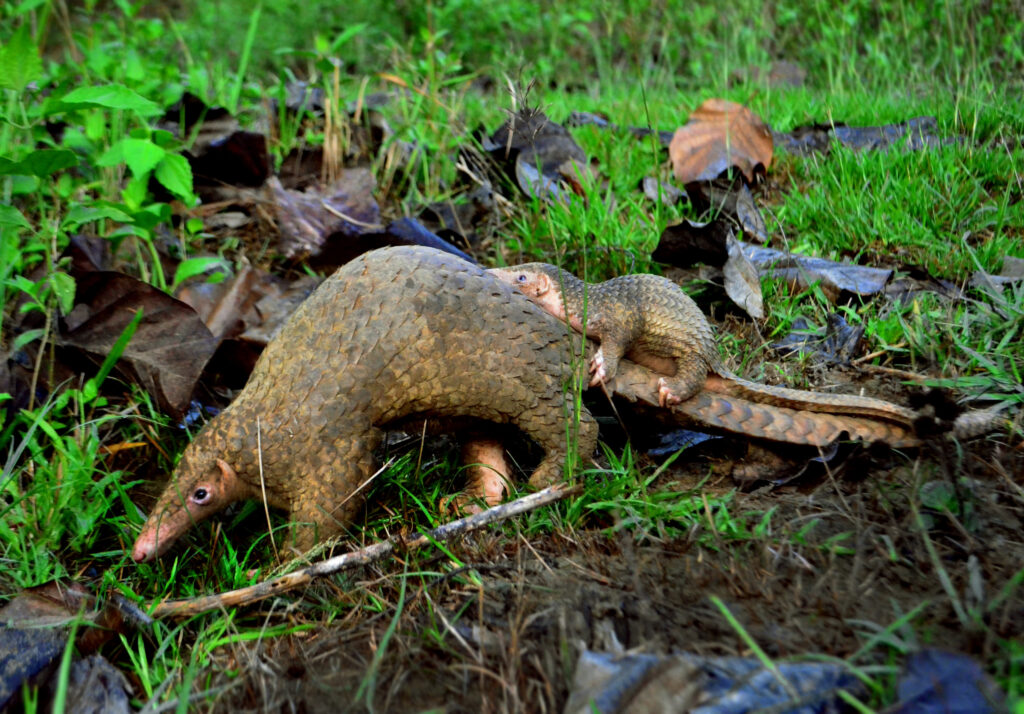
The Philippine or Palawan pangolin (Manis culionensis) occurs only on the island of Palawan. It is an arboreal species, spends most of its life in the treetops, but can also be found in grassy areas where it looks for termites. It is a critically endangered species.
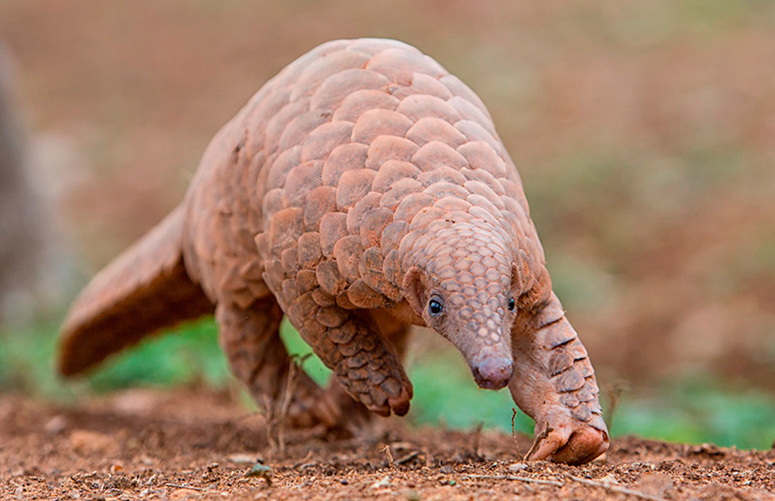
The Indian or thick-tailed pangolin (Manis crassicaudata) is found in the tropical forests of India, Pakistan, Nepal and Sri Lanka, and can also be found in grassy and even desert areas. It leads a terrestrial lifestyle, digs deep burrows. It is an endangered species.
What we do?
Together with the Wrocław zoo, we support projects saving pangolins confiscated in Laos and Vietnam, and restoring them to nature. They are mainly Chinese and Sunda pangolins.
We support the Save Vietnam’s Wildlife station, where pangolins confiscated in Vietnam have been rescued since 2014. Maintaining pangolins is very costly and laborious due to their diet: they eat termites and ants. One pangolin eats up to 20,000 ants per day. Animals rescued from smugglers are in very poor condition and require expensive treatment. They are usually transported in plastic bags. It is not uncommon for traders to force their animals to drink water and sand in order to increase their weight. Curing a pangolin requires great knowledge and experience.
The project of releasing rescued and cured pangolins into their natural habitat is a huge success of Save Vietnam’s Wildlife. The place of release is always a secret so that poachers cannot catch the animals again. Drones are used to monitor the movement of animals in hard-to-reach mountain and forest areas.
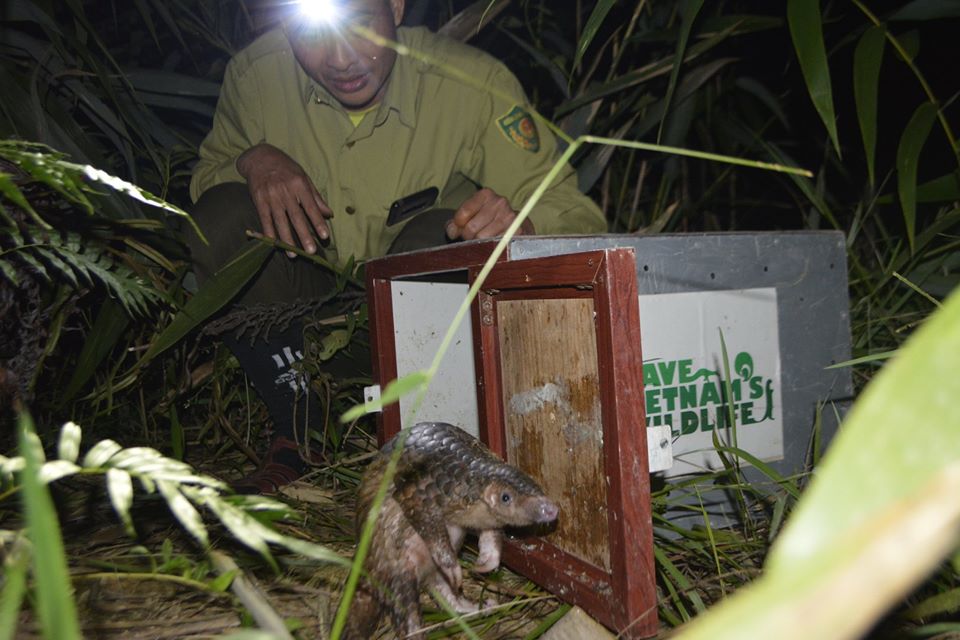
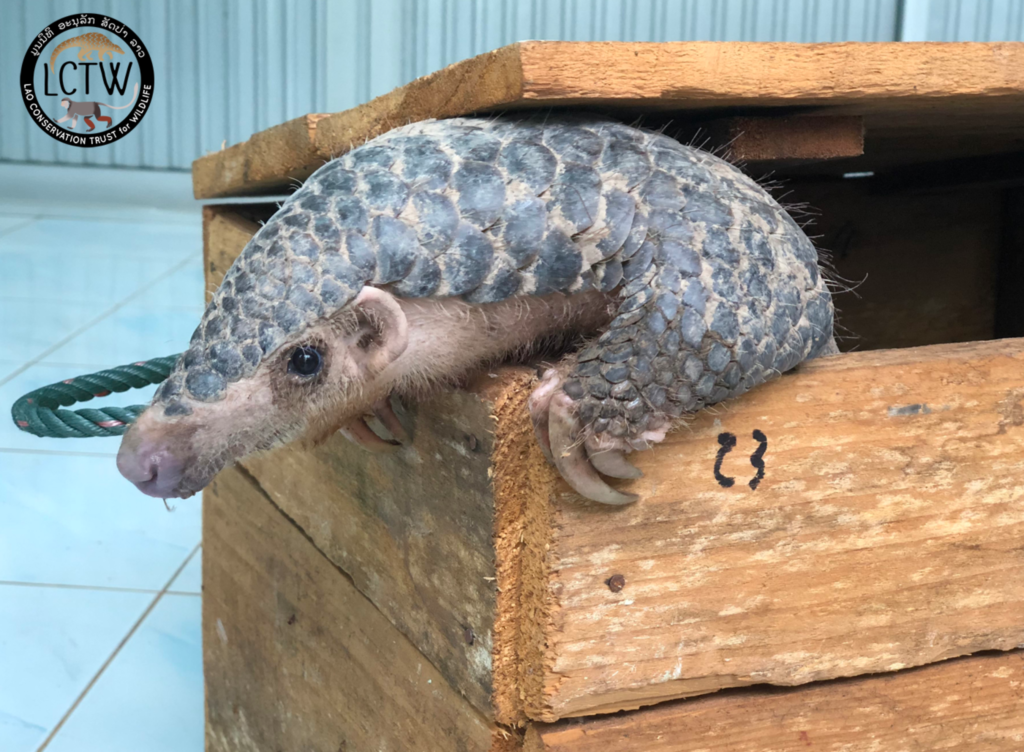
In 2018, we supported the construction of an enclosure for confiscated pangolins at the Lao Conservation Trust for Wildlife. Pangolins’ enclosures must be very well constructed to keep the animals safe from thieves. Pangolins also have very specific requirements: absolute peace (they are loners), high air humidity, a special substrate, they like digging burrows and don’t like daylight because they are nocturnal mammals. The first pangolins are already in the new enclosure.
Wrocław Zoo together with Prague Zoo is the founder of Pangolinarium at the Free the Bears station. The bear rescue organization is increasingly looking after other species of animals confiscated in Laos. Other species require different enclosures and specific care. Hence our help is needed!
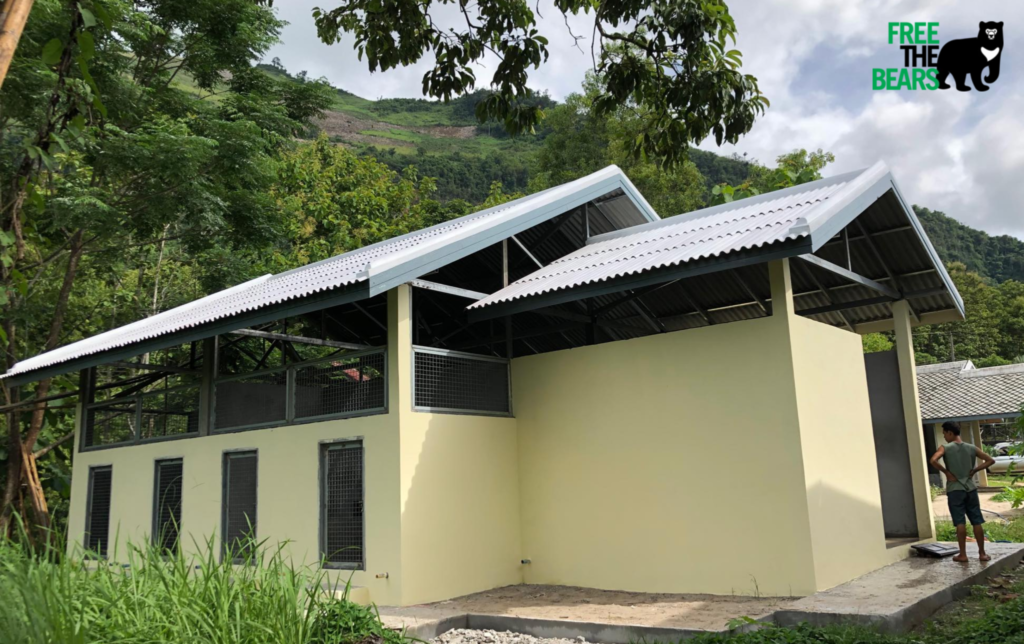
When saving pangolins, it is very important to cooperate with local authorities and educate the population. All the organizations we support train the police and government officials to respond when poaching or trafficking in pangolins is detected. It is essential that the animals are handed over quickly to specialists. They also conduct educational campaigns showing the pointless consumption of pangolins’ scales and meat and their enormous role in the ecosystem.
If you want to help us save pangolins, please make a payment to our bank account:
PKO Bank Polski SA 1 o/Wrocław
account number: 89 1020 5226 0000 6102 0547 2040
with the annotation PANGOLINS
All the money will be spent on saving pangolins. Thank you!
